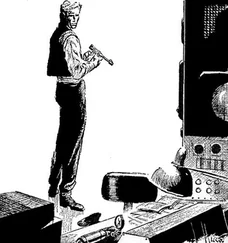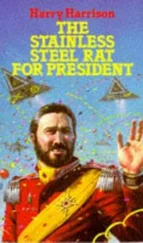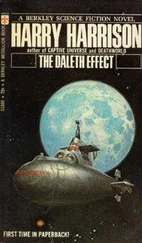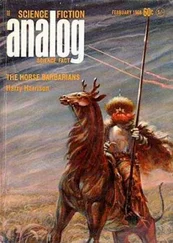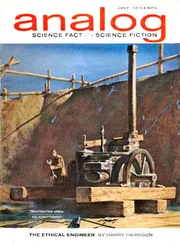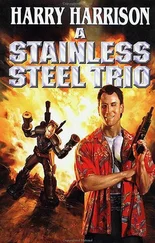Harry Harrison - The Turing Option
Здесь есть возможность читать онлайн «Harry Harrison - The Turing Option» весь текст электронной книги совершенно бесплатно (целиком полную версию без сокращений). В некоторых случаях можно слушать аудио, скачать через торрент в формате fb2 и присутствует краткое содержание. Год выпуска: 1992, ISBN: 1992, Издательство: Viking, Жанр: Фантастика и фэнтези, на английском языке. Описание произведения, (предисловие) а так же отзывы посетителей доступны на портале библиотеки ЛибКат.
- Название:The Turing Option
- Автор:
- Издательство:Viking
- Жанр:
- Год:1992
- ISBN:978-0-670-84528-6
- Рейтинг книги:3 / 5. Голосов: 1
-
Избранное:Добавить в избранное
- Отзывы:
-
Ваша оценка:
- 60
- 1
- 2
- 3
- 4
- 5
The Turing Option: краткое содержание, описание и аннотация
Предлагаем к чтению аннотацию, описание, краткое содержание или предисловие (зависит от того, что написал сам автор книги «The Turing Option»). Если вы не нашли необходимую информацию о книге — напишите в комментариях, мы постараемся отыскать её.
The Turing Option — читать онлайн бесплатно полную книгу (весь текст) целиком
Ниже представлен текст книги, разбитый по страницам. Система сохранения места последней прочитанной страницы, позволяет с удобством читать онлайн бесплатно книгу «The Turing Option», без необходимости каждый раз заново искать на чём Вы остановились. Поставьте закладку, и сможете в любой момент перейти на страницу, на которой закончили чтение.
Интервал:
Закладка:
“Do you know about multiplying?”
“Sure — it’s fun. Like 14 times 15 is 210 because so is 6 times 35 and 5 times 42.”
“Are you positive?”
“Ain’t no mistake. Because they’re both as 2 times 3 times 5 times 7. I like 210 because it’s made up of four. different chunky numbers.”
“Chunky numbers? Is that an Irish term?”
“Nope. Made it up myself,” the boy said proudly. “Chunkies are numbers with no parts. Like 5 and 7. And big ones like 821 and 823. Or 1721 and 1723. A lot of the big ones come in pairs like that.”
Chunky numbers was Brian’s term for prime numbers, Paddy realized. Should eight-year-olds know about primes? Were they taught at this age? — He couldn’t remember.
It was after eleven that night when Dolly turned off the television. She found Paddy in the kitchen. His pipe had gone out and he was staring, unseeing, out into the darkness.
“I’m going to bed,” she said.
“Do you now what Brian seems to have done? All by himself. At the age of eight. He has discovered prime numbers. Not only that — he seems to have worked out some pretty efficient ways to find primes.”
“He’s a very serious little boy. Never smiles.”
“You’re not listening. He’s very bright. More than that — he has a basic understanding of mathematics, something almost all of my students are lacking.”
“If you think so then have them do an I.Q. test in school. I’m tired. We can talk about it in the morning.”
“I.Q. tests are too culturally orientated. Later maybe, when he has been here a while. I’ll talk to his teachers about it when I take him to school.”
“Not the very first day you won’t! He has to get used to things first, settle in. And it’s about time you thought about your own classes, research. I’ll take him to school tomorrow. You’ll see, it’s going to work out fine.”
Brian hated the school. From the very first moment he arrived. Hated the big fat black headmaster. He was called a principal here. Everything was different. Strange. And they laughed at him, from the very beginning. It was the teacher who started it.
“That will be your class seat,” she said, pointing not too precisely at the row of desks.
“The terd one?”
“The third one, yes. But you must say it correctly. Third.” She waited, smiling insincerely at his silence. “Say third, Brian.”
“Terd.”
“Not turd, that is a different word. Third.”
That was when the children laughed, whispered “Turd!” at him as soon as the teacher’s back was turned. When the bell rang and the class ended he went into the hall with the others, but kept going right out of the school, away from them all.
“And that was the very first day in school,” Dolly said. “Ran away after his very first class. The principal phoned and I was worried sick. It was after dark before the police found him and brought him home.”
“Did he tell you why?” Snaresbrook asked.
“Never, not him. Either closemouthed or asking too many questions, nothing in between. Not sociable either. You might say that the only friend he had was his computer. You would think he would have had enough of that during school hours. All computerized now, you know. But no. As soon as he was home he would be right at it again. Not just games, but writing programs in LOGO, the language he had learned in school. Very good programs too, that’s what Paddy said. The boy was writing learning programs that wrote their own programs. There was always something special between Brian and computers.”
5
February 18, 2023
Benicoff was waiting when Snaresbrook came out of the operating room.
“Do you have a moment to spare, Doctor?”
“Yes, of course. You can tell me what is happening at your end…”
“Can we continue this in your office?”
“Good idea. I have a new coffee machine that I want to try out. It just arrived and was installed this morning.”
Benicoff closed the office door, then turned and raised his eyebrows at the brass machine. “I thought you said new?”
“New to me, that is. This gorgeous device must be ninety years old if it is a day. They just don’t make them this way anymore.”
“With good reason!”
It was six feet high, an impressive gleaming array of valves, pipes, riveted plates, cylinders--all of which was crowned by a bronze eagle with wide-spread wings. Steam hissed loudly from a protruding pipe when Dr. Snaresbrook twisted a knob. “Espresso or cappuccino?” she asked, loading fragrant black coffee into the black-handled holder.
“Espresso — with a twist of lemon.”
“I can see that you have been around. That’s the only way to drink it. Is there any news on the thieves?”
“Negative — but a hard-worked negative. The FBI, the police and a dozen agencies have kept this investigation going night and day. Every possible lead has been followed, every detail of that night’s events investigated exhaustively. Yet there’s not a thing discovered worth mentioning since I talked to you last. That’s good coffee.” He sipped again and waited until Snaresbrook had made one of her own. “And that, I am sorry to say, is all that I have to report. I hope you have better news about Brian.”
Erin Snaresbrook stared into the steaming dark liquid; stirred in another spoonful of sugar. “Basically the good news is that he is still alive. But the severed nerves deteriorate more every day. I’m racing against time — and I don’t know yet if I am winning or losing. As you know, after a nerve fiber dies, a sort of empty tube remains. That was why I have implanted fetal brain cells to grow and replace those fibers. The manipulating machine will also inject tiny amounts of the nerve growth drug gamma-NGF to induce the fetal cells’ axons to grow down those tubes. This technique was discovered in the 1990s by researchers looking for a way to repair spinal-cord injuries — they used to always result in permanent paralysis. Now we repair brain injuries by using this and another drug, SRS, that overcomes the tendency of mature brain cells to resist invasion by other nerve fibers trying to make new connections.”
Benicoff frowned. “Why would brains do such a thing, if it keeps them from repairing themselves?”
“An interesting question. Most other body tissues are very good at making repairs, or admitting other cells that offer help. But think for a moment about the nature of a memory. It is based on the precise relations of unbelievably tiny fiber connections. Once those connections are made, they have to persist, with almost no change, for twenty, or fifty, or even ninety years! Therefore the brain has evolved many peculiar defenses of its own, defenses found in no other tissue, to prevent most normal kinds of change. It appears that the advantage of having better memory outweighs the advantage of being able to repair injury.
“Brian’s recovery is going to take some time. The slowest part of the process will be regrowing the severed nerve fibers. That will require at least a few months, even using NGF, since we don’t dare to use it in large doses. NGF causes uninjured brain cells to grow as well — which if not monitored closely will disrupt the parts of the brain that still work! To say nothing of the risk of cancer. Because of this, Brian’s progress will be very slow.”
“Will you be proceeding with this process now?”
“Not at once, not until the new nerve fibers have grown. When that has happened we will have to find out what the brain cells do on each side of the injury. When we have sorted that out, we can think about reconnecting the correct pairs.”
“But there must be millions of them!”
“There are — but I won’t have to untangle them all. I’ll start by finding the easiest ones. Bunches of nerve fibers that correspond to the most common ideas, ones that every child has. We’ll display pictures of dogs, cats, chairs, windows, a thousand objects like that. And look for fibers that are active for each one.” For the first time she forgot her chronic exhaustion, buoyed up by enthusiasm.
Читать дальшеИнтервал:
Закладка:
Похожие книги на «The Turing Option»
Представляем Вашему вниманию похожие книги на «The Turing Option» списком для выбора. Мы отобрали схожую по названию и смыслу литературу в надежде предоставить читателям больше вариантов отыскать новые, интересные, ещё непрочитанные произведения.
Обсуждение, отзывы о книге «The Turing Option» и просто собственные мнения читателей. Оставьте ваши комментарии, напишите, что Вы думаете о произведении, его смысле или главных героях. Укажите что конкретно понравилось, а что нет, и почему Вы так считаете.

